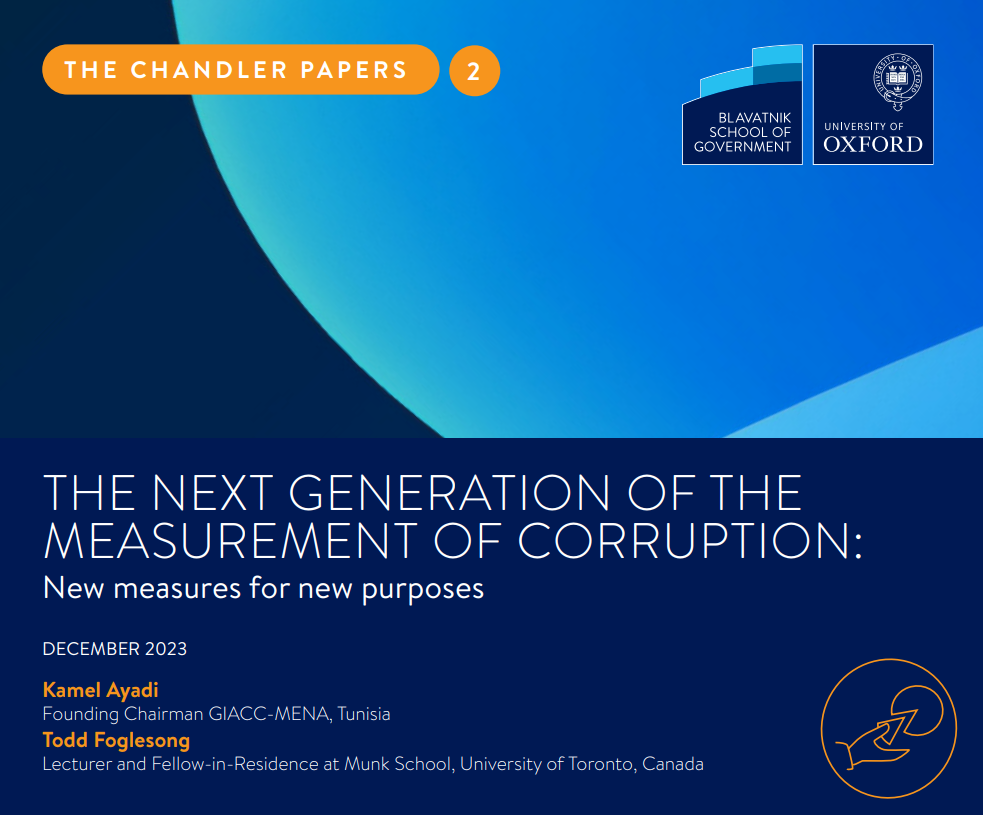
See below the article published in the website of the Oxford University – Blavatnik School of Government, last 4 December 2023. The original article is available on this page.
One of the central debates in the global anti-corruption community is that of corruption measurement. A quarter of a century ago, the main purposes behind the first international measures of corruption was to overcome complacency and instigate change in the way governments responded to corruption. Yet, we know little about how the various global indicators of corruption get used, and public officials with an anti-corruption mandate still need to know whether they are doing well, so that they do not believe that they are succeeding when they are failing or the other way around.
In the “Chandler Papers – The next generation of the measurement of corruption” (available here), Kamel Ayadi, Chair of the WFEO Committee on Anti Corruption (CAC), Chair of the Global Infrastructure Anti-corruption Centre (GIACC) in Tunisia and a former Minister of Public Service Governance and Anti-corruption in the same country, together with Todd Foglesong, Lecturer and Fellow-in-Residence at the University of Toronto, articulate seven purposes and principles to animate the development of alternatives to gross global indicators of corruption and to invite government officials into such a collaboration.
The Chandler Papers are written by the members of The Chandler Sessions on Integrity and Corruption, a group brought together by the Blavatnik School of Government to focus on issues of corruption worldwide and to analyse current practices employed to root out corruption, the tools available to penalise wrongdoers and the indicators used to measure corruption.
For more information:
The Chandler Papers: The next generation of the measurement of corruption
WFEO Committee on Anti Corruption website
The Chandler Sessions on Integrity and Corruption
DEC
2023
